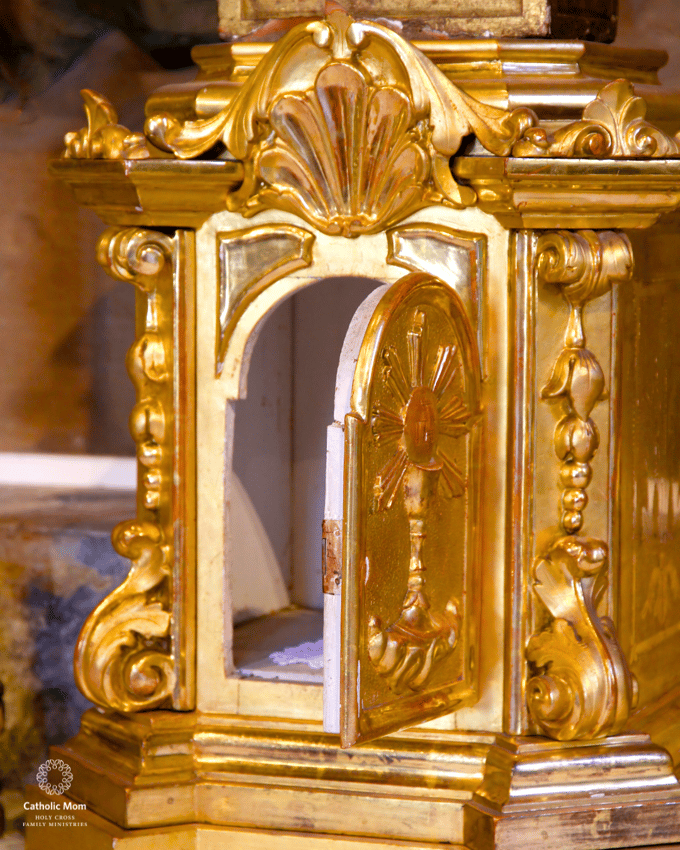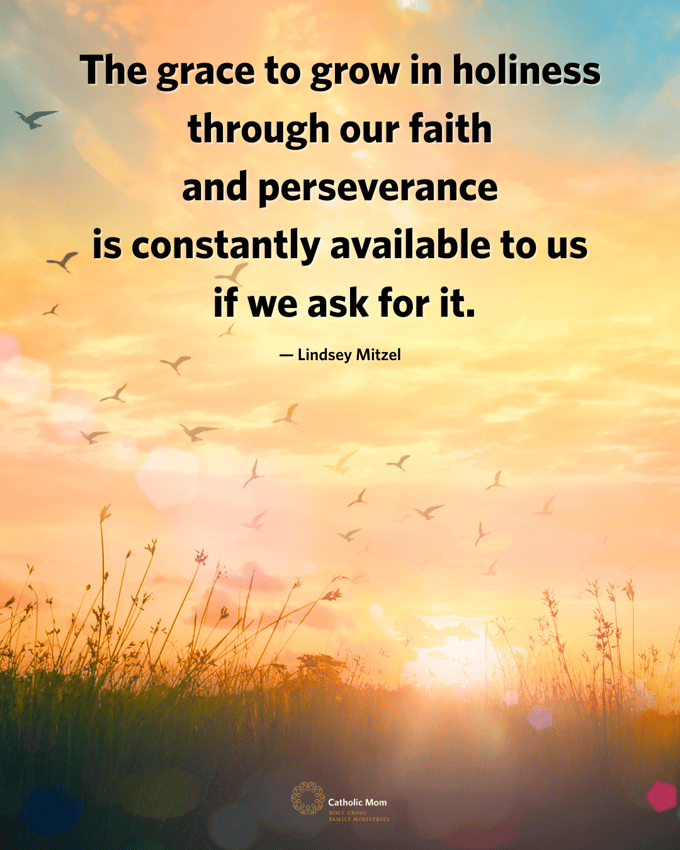
Holy Thursday | Holy Week | catholic family life
When Covid-19 hit my town, I was two weeks away from delivering my fifth child. Coming home to my other kids, with my husband off work for a short time, I honestly didn’t mind the stay-at-home orders initially. Winter melted away to warm spring air, and the loss of many material things and social isolation still held a feeling of hopefulness — maybe these sacrifices would prove fruitful. Yet amid the confusion and incredible pain so many encountered, we suffered incomparably with the closing of churches.
Daily Mass was no longer offered, and Adoration chapels were shuttered. Jesus was hidden in plain sight, though for the first time since my conversion, he wasn’t accessible. There are many stories of people whose access to the Eucharist is limited. Blessed Victoire Rasoamanarivo (1848-1894) lived in Madagascar when the French Missionary priests left due to conflict. She was placed in charge of the faith of a Catholic community of around 21,000 people for three years. Without access to any sacraments, the community endured and became even more grateful for them when the priests finally returned.
For me, the time following Holy Thursday Mass into the Easter Vigil feels a bit like closing churches. I am blessed to live close to a church with 24-hour Adoration. There is something wonderful about being able to pop in and say “Hi" to Jesus for a few minutes or adore Him after dropping my kids off for an activity. However, just as during the shutdown, as we remember Jesus’ Passion, death, and His empty tomb, I feel a real stripping away of a beloved friend.

As I’ve been reflecting on the emotions I have when leaving church in silence on Holy Thursday and filing into the pew on Good Friday, with the Tabernacle wide open and no sanctuary lamp lit, I realize it’s predominately an experience of emptiness and loneliness that I usually feel.
How relatable this emotion is to us all. How often do we feel isolated or alone in our daily lives? How often do we experience something that others close to us cannot relate to? How did Jesus feel in the Garden of Gethsemane, praying, knowing He was about to die, and consistently finding His disciples asleep, instead of waiting and praying with Him (Matthew 26:36-40)?
Imagine how the women visiting Jesus’ tomb must have felt as they walked along the path towards where their friend lay. They expected to come upon a sealed tomb in quiet darkness. Yet as Matthew’s Gospel describes, the earth shook, the stone was rolled away from the tomb, the guards fell away, stunned, and a brilliantly shining angel appeared in front of them, sitting atop the stone (Matthew 28:2-6).
I can’t imagine the bewilderment the women must have felt, as well as fear. Traumatized in their witness of Jesus’ crucifixion and burial days before, now experiencing another “loss” of Jesus again, in learning of his empty tomb, it amazes me that their response to the angel telling them of Jesus’ Resurrection is to quickly run to tell the disciples this news, fearful but overjoyed (Matthew 28:6-8).
When we feel alone, afraid, anxious, or isolated, or empty — like we have nothing left to give, can it not feel like walking into church on Good Friday, and encountering an empty Tabernacle? When we experience emptiness in our hearts, where is Jesus? Many saints have experienced what some call a "dark night,” where Jesus seems shrouded to them for short or long periods of time. Jesus honors the faith of these holy men and women as they persevere in their vocations and prayer, despite the tremendous loss of feeling Jesus’ closeness to them.
When the women are hastening to tell the disciples of Jesus’ rising again, Jesus himself meets them, greets them, and allows Himself to be embraced (Matthew 28:9). As we walk through Holy Week, perhaps alongside sickness, anxiety, fear, a sense of emptiness or Jesus being far from us, we can be encouraged that the grace to grow in holiness through our faith and perseverance is constantly available to us if we ask for it. This grace surpasses anything we desire to experience, or hope will change, on Easter.

My pastor shared last year that the grace of Easter is present, regardless of how we are feeling or how things appear. Regardless of what circumstances we find ourselves in, and whether we feel much like celebrating on Easter Sunday, we can remain assured of Jesus’ victory over sin and death. We can be assured of Christ’s presence with us, even if He remains hidden, like He was for a time before the disciples on the road to Emmaus (Luke 24:15-25), and to Mary Magdelene in the garden (John 20:14-16).
Lindsey Mitzel is a nurse practitioner and mom to six littles. When not homeschooling or driving her kids to various places, she enjoys gardening, hiking, and running. Lindsey appreciates dry humor, a good pun, and coffee. You can read more about her at Eight and a Half Months. Lindsey also occasionally writes for Be Love Revolution's Tiny Thoughts blog.
